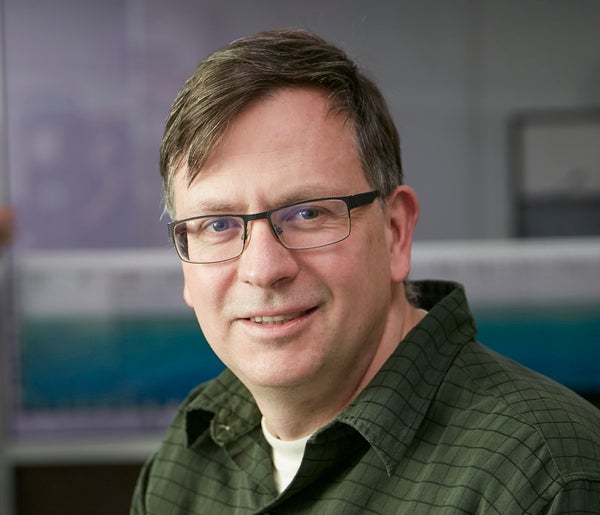Congratulations to Marek Stastna, professor of Applied Mathematics, on being awarded $1.65 million in funding for an NSERC Collaborative Research and Training Experience (CREATE) program. Stastna and his team's CREATE program is titled “Training for Novel Directions in Quantitative Climate Science.”
CREATE programs support “the training and mentoring of teams of highly qualified students and postdoctoral fellows from Canada and abroad through the development of innovative training programs” that encourage collaboration, address significant scientific challenges, and enable professionalization.

“I hope the funding leads to a greater profile for the Faculty of Mathematics within the climate space, both at UW and beyond,” Stastna says. “I also hope it will increase Math’s profile in interdisciplinary research. I feel both excited to start, and a bit nervous due to the novelty of the endeavour.”
Stastna, who completed all his degrees at Waterloo and has taught here since 2004, has been conducting research at the intersection of mathematics and climate science for decades. He has served as both the publications director and the president of the Canadian Meteorological and Oceanographic Society, and is currently the chief editor of Atmosphere-Ocean.
Stastna says that he applied for CREATE program funding “as a way to strengthen a community of like-minded individuals who see a strong role for the quantitative/mathematical side of climate science.” The funding will help bring in graduate students focused on this research, will allow for summer education with a broad student footprint, will allow for stronger relationship between Waterloo and the three other participating institutions (The University of Toronto, McGill University, and Dalhousie University) as well as Environment and Climate Change Canada and the Department of Fisheries and Oceans. It will also ideally increase graduate student opportunities for employment in industry and government post-graduation.
“I would like to thank my co-PI Francis Poulin, who advocated for taking a CREATE on and convinced me this was a good idea (and helped all along the way),” Stastna says. He is also grateful to Brittany Reiche and Sarindra Andrianasolo in the Mathematics Office of Research, the office of the Vice President, Research and International, and the deans of the Faculties of Mathematics, Engineering, and Environment.
You can learn more about the NSERC’s CREATE programs on their website.